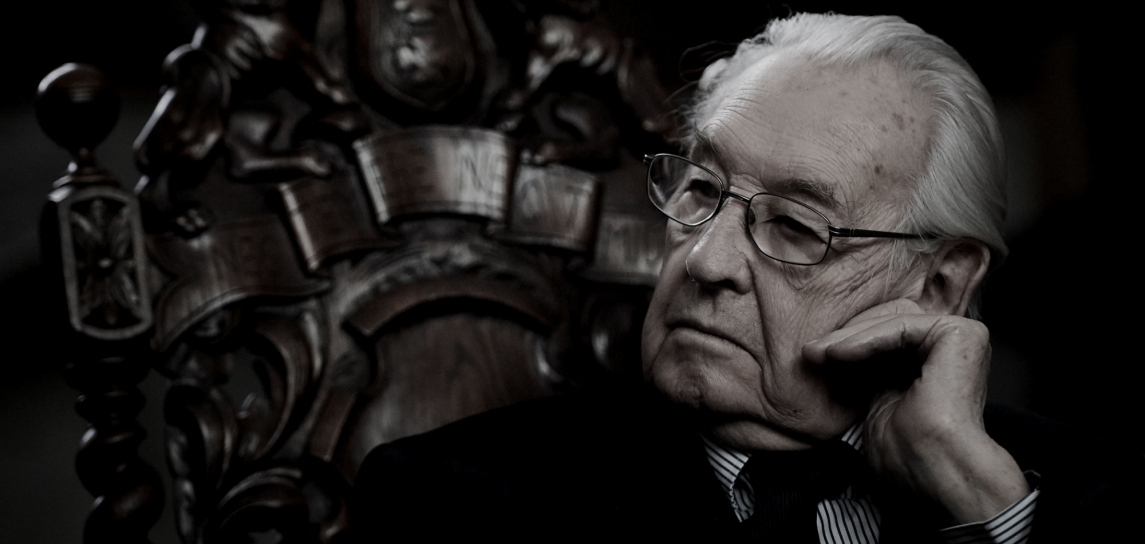Andrzej Wajda's Archive
Visit our website dedicated to Andrzej Wajda: www.wajdaarchiwum.pl
The Andrzej Wajda Archive, since 2011 an integral part of the Manggha Museum’s collection, is a legacy of unique significance for at least three reasons. First of all because the assembled materials pertain to a person whose artistic achievement is indisputably eminent and ubiquitously recognized. Secondly due to the value and significance of the archival materials, and finally on account of the history of gathering them, which suggests that the way in which the collection was ordered was the artist’s own creative idea.
The archives have been systematised according to Andrzej Wajda’s successive projects. These include the Master’s artistic (films, theatre productions, exhibitions, etc.), educational (e.g. Master School of Film Directing) and civic projects (e.g. formation of the Kyoto–Krakow Foundation and construction of the Manggha Centre [now Museum] of Japanese Art and Technology in Krakow, the Wyspiański Pavilion, or the Japanese Language School in Krakow), as well as his social and political engagements (Solidarity Trade Union, Senate of the Republic of Poland, Polish Filmmakers’ Association, etc.).
Materials produced for each of the projects include at least:
▪ scripts (often in several versions);
▪ storyboards and sketches;
▪ publications used for the film/theatre production, etc. (fiction, specialist literature on the subject, etc.);
▪ Andrzej Wajda’s (private and official) correspondence;
▪ invitations, theatre programmes, posters, film stills, photographs;
▪ exhibition catalogues;
▪ with respect to film and theatre projects: audio and video recordings (VHS, DVD, including foreign language versions, and music on CD or vinyl records);
▪ props and costumes used in film and theatre.
Furthermore, the archive encompasses a sizeable collection of books and other publications, in Polish and other languages. This category also includes a number of masters’ and doctoral theses on Wajda’s oeuvre. A large group of archivalia is connected with prizes and commendations awarded to Andrzej Wajda (correspondence, telegrams, letters of congratulation, laudatory speeches delivered during honorary doctorate ceremonies, etc.) and private documents (notes, correspondence, mementoes in the form of paintings, sketches, books, exhibition catalogues, etc.).
The Andrzej Wajda Archive, since 2011 an integral part of the Manggha Museum’s collection, is a legacy of unique significance for at least three reasons. First of all because the assembled materials pertain to a person whose artistic achievement is indisputably eminent and ubiquitously recognized. Secondly due to the value and significance of the archival materials, and finally on account of the history of gathering them, which suggests that the way in which the collection was ordered was the artist’s own creative idea.
The archives have been systematised according to Andrzej Wajda’s successive projects. These include the Master’s artistic (films, theatre productions, exhibitions, etc.), educational (e.g. Master School of Film Directing) and civic projects (e.g. formation of the Kyoto–Krakow Foundation and construction of the Manggha Centre [now Museum] of Japanese Art and Technology in Krakow, the Wyspiański Pavilion, or the Japanese Language School in Krakow), as well as his social and political engagements (Solidarity Trade Union, Senate of the Republic of Poland, Polish Filmmakers’ Association, etc.).
Materials produced for each of the projects include at least:
▪ scripts (often in several versions);
▪ storyboards and sketches;
▪ publications used for the film/theatre production, etc. (fiction, specialist literature on the subject, etc.);
▪ Andrzej Wajda’s (private and official) correspondence;
▪ invitations, theatre programmes, posters, film stills, photographs;
▪ exhibition catalogues;
▪ with respect to film and theatre projects: audio and video recordings (VHS, DVD, including foreign language versions, and music on CD or vinyl records);
▪ props and costumes used in film and theatre.
Furthermore, the archive encompasses a sizeable collection of books and other publications, in Polish and other languages. This category also includes a number of masters’ and doctoral theses on Wajda’s oeuvre. A large group of archivalia is connected with prizes and commendations awarded to Andrzej Wajda (correspondence, telegrams, letters of congratulation, laudatory speeches delivered during honorary doctorate ceremonies, etc.) and private documents (notes, correspondence, mementoes in the form of paintings, sketches, books, exhibition catalogues, etc.).
